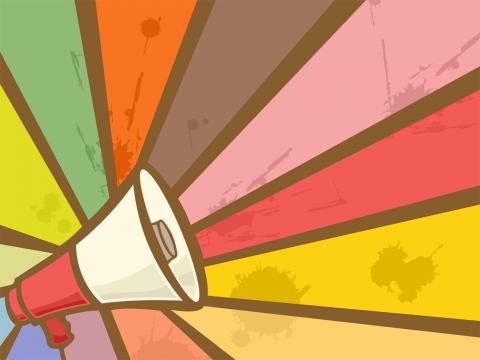- Home
- Publishing Your Scholarship is Just the Beginning
Publishing Your Scholarship is Just the Beginning
We all have our favorites. The scholarship that represents our very best work; that perhaps even defines us as academics. We engage in time-consuming, painstakingly careful efforts to bring this scholarship to fruition, motivated by a passion for the line of inquiry, and the desire to make a significant contribution to science and a positive impact on society.
The research publication that I am most proud of is also the article that has been cited the least relative to my other works. It was published in an excellent social science journal, and it involved a study with rigorous research methods and compelling findings. It encapsulated almost 10 years of scientific inquiry on a question that I consider central to my academic identity, and that stood to inform an important topic related to a vulnerable population. Over the years, I’ve thought often about this lackluster outcome, and wondered what I could have done differently to ensure that my research made a bigger impact.
Then, I came across Khiara Bridges.
A few weeks ago, I was mindlessly scrolling through my Twitter feed, and I came across a video interview with Dr. Bridges, who was discussing her new book: “The Poverty of Privacy Rights”, published by Stanford University Press. The topic of her book has relevance to my research and teaching, so I read the reviews and excerpts, and decided to purchase it. I reached out to Dr. Bridges, who is a Professor of Law and Cultural Anthropology at Boston University (and a cool side fact, also a professional ballet dancer), to ask if she had any guidance on how to translate the book to the college classroom. She had thoughts about the kinds of courses that may align with the book, the education level of students likely to benefit from it, central discussion topics to guide course integration of the book, and a few podcast discussions of her work. I could now clearly see how this book could be adopted and used in one of my regular courses on social policy.
There are at least two summary points to make at this juncture. First, I’m not sure I would have stumbled on Dr. Bridges’ book, at least not as early as I did, if not for the Twitter post I encountered. Second, although the topic of her book overlaps with my area of teaching, I’m not sure I would have seriously considered assigning the book in one of my classes if not for the additional guidance and ancillary materials she provided. It became less necessary for me to read the book before deciding to adopt it (a hurdle I too often cannot clear far enough in advance of ordering deadlines for course materials), because I was provided with a blueprint for using it as a teaching tool.
Another important point to make is that the entire exchange between us constituted an isolated, one-to-one connection, in that it only benefited a single scholar—me. I encouraged Dr. Bridges to join Prof2Prof.com, a free web platform that I created and recently launched to facilitate the exchange of ideas, resources, and strategies among higher education professionals. Her guidance and additional materials related to the book, as well as a link to the book itself, are all provided on her Prof2Prof profile page, discoverable by other academics on the platform who are searching for material relevant to their teaching and research.
If I could go back in time and re-do my academic career, I would follow in the footsteps of scholars like Dr. Bridges. Publishing her book was not the end of a journey. She put herself and her work out there, a step that many academics find uncomfortable. However, her work is important. It should be found by as many people as possible, and it should be widely taught in college classrooms. When we “market” our scholarship, we need to remind ourselves that it is less about us and more about ensuring that our work has broad impact that benefits society. Ensuring that impact requires extra steps beyond a book’s release (or an article’s publication) and presenting at a few academic conferences. It involves efforts to significantly heighten discoverability of the work, to translate the book to various audiences, and to provide insight that only you, as the author, have with respect to effectively scaffolding students’ understanding of the material.
I can’t go back in time, but I can move forward with a re-tooled strategy for my scholarship. I can also encourage other academics to follow a similar path. While there are many reasons that higher education, and science in general, finds itself under attack these days, academics can play a critical role in reversing that tide. Make sure the world knows about and understands your work. Teach people how to use it to make society a better place. Then go back and do it all over again.
Kristen Slack, Founder
Prof2Prof.com
Image: @ lenmdp

